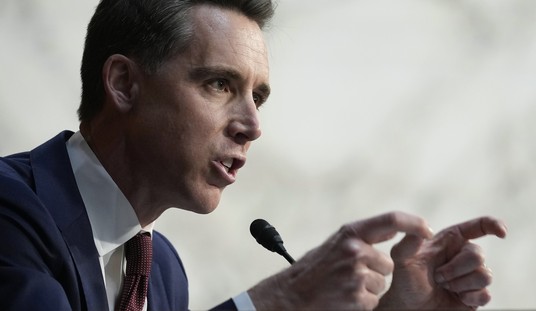As Katie reported last evening, the latest Congressional Budget Office score of the House-passed American Health Care Act contains good news and bad news for the GOP. On the bright side, it appears that its central fiscal outcome complies with reconciliation rules, which would allow the process to move forward without a complicated tweak-and-do-over vote in the House. The nonpartisan scorekeeper also found that individual market premiums "would decline on average," and would reduce the federal deficit by $119 billion. On the other hand, media outlets are running with false headlines like these:
BREAKING: CBO estimates 23 million people will lose health insurance over next 10 years under American Health Care Act
— NBC News (@NBCNews) May 24, 2017
JUST IN: CBO: 23 million will lose health coverage under GOP ObamaCare repeal bill.https://t.co/AgT1HaFSjt pic.twitter.com/qtcn4qzREc
— The Hill (@thehill) May 24, 2017
This is deeply misleading, for reasons that we explained in detail when the CBO released its March analysis of the initial ACHA. In short, the large bulk of those who are said to be "losing" coverage do not currently have coverage. You cannot "lose" something that you don't have. CBO assumes that these people would eventually gain coverage through the magical powers of Obamacare's individual mandate (more on that in a moment), or through hypothetical future expansions of Medicaid by most of the states that haven't done so to date. Current Medicaid beneficiaries, including those who've gained (very flawed) coverage under Obamacare's expansion, are grandfathered in under the House GOP proposal. It also bakes into these new numbers a slew of empirically-incorrect projections that have been disproven by actual data. When Obamacare first passed, CBO anticipated that by 2016, 21 million Americans would enroll in the law's exchanges. When 2016 rolled around, the real number was just about 10 million. A massive miss. Remarkably, CBO relies on its revised 2016 "baseline" in its new calculations -- but the 2016 baseline was also off by millions. By their own admission. Despite these demonstrable misfires, CBO is still using verifiably-disproven, Obamacare-friendly estimates as the basis for comparison:
Recommended
@kerpen Here is the annual error in covered lives of the CBO 2016 and 2017 baseline. Shocking something so out of date can be used. pic.twitter.com/unHd1kXWxQ
— Daniel Clifton (@DanCliftonStrat) May 24, 2017
That's the aforementioned magical thinking, and it's indefensible when there's real data available to plug into the calculations. So when you take away the people who already don't have coverage under Obamacare but who CBO has decided would hypothetically do so in the years ahead, and substitute actual enrollment numbers for CBO's outdated and disproven projections, only a few million of the "23 million" would actually lose existing coverage -- and these people would receive tax credits to purchase new plans, many of which would cost less under the AHCA. We should also point out that millions who'd "lose" coverage would do so voluntarily, affirmatively choosing not to buy a product that the government is no longer forcing them to purchase. Beyond that, conservative healthcare wonk Philip Klein also finds some of CBO's additional analysis to be puzzling:
CBO's logic is a bit weird -- arguing that markets will become unstable if insurance pool have more healthy people and fewer unhealthy ppl
— Philip Klein (@philipaklein) May 24, 2017
Incredibly, CBO assesses Obamacare's current individual market as "stable in most areas" moving forward, and attributes some limited instability "in some areas of the country" to Trump-caused uncertainty (without explicitly mentioning the president's name). These are Democrat talking points. Insurers have been withdrawing from exchanges and jacking up premiums for years due to Obamacare's unsustainable risk pools. Just ask the Obama administration. One can question whether the AHCA would fix the underlying adverse selection problem, but it's fantasyland to pretend that Obamacare is headed for relatively clear sailing. It's not. We know this for a fact. Klein also notes that CBO won't estimate premium decreases for states that seek mandate waivers, then asks this question:
CBO can't estimate premiums in states with pop of around 50 million people.So how can it predict coverage #s & spending on tax credits, etc?
— Philip Klein (@philipaklein) May 24, 2017
Anyone have a good answer to this? Finally, despite the AHCA's multiple layers of protections for people with pre-existing conditions -- which many of the bill's critics like to ignore -- CBO underscores the concern that some people in that population who live in states that waive Obamacare's "community rating" mandate (and who don't remain continuously insured) could face unaffordable price tags -- especially those in the near-retirement age bracket. That's a pitfall that the Senate is working on, and that the House sought to mitigate by targeting more generous tax credits for people in that affected cohort. One question I'd like to nail down is whether someone in this situation would only pay a 30 percent surcharge for one year before crossing into "continuously insured" status -- meaning that he or she is no longer subject to community rating waivers in future years.

























Join the conversation as a VIP Member